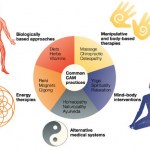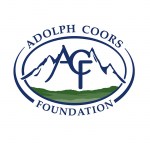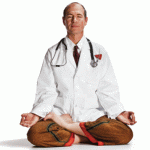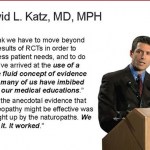integrative medicine
I’ve frequently referred to “integrative medicine” as the “integration” of quackery with conventional, science-based medicine for the very good reason that that’s what it really is. However, advocates of medicine not based in science are nothing if not masters of marketing, which is how, over the course of three decades or so, “alternative medicine” morphed into “complementary and alternative medicine” (CAM), which ultimately morphed into its most recent incarnation, “integrative medicine.” The term “integrative medicine” is fantastic from a marketing perspective because it implies (and is…
After over 11 years at this blogging thing, I periodically start to fear that I’m becoming jaded. In particular, after following the infiltration of quackery in the form of “complementary and alternative medicine” (CAM), now more commonly known as “integrative medicine,” because it integrates CAM with evidence-based medicine. Of course, in reality, what “integrative medicine” really does is to integrate prescientific, pseudoscientific, and antiscientific quackery with real medicine, and that’s what I mean. I thought I had seen it all in academic medical centers and medical schools: the faith…
"Complementary and alternative medicine" (CAM), now more frequently referred to as "integrative medicine" by its proponents, consists of a hodge-podge of largely unrelated treatments that range from seemingly reasonable (e.g., diet and exercise) to pure quackery (e.g., acupuncture, reiki and other "energy medicine") that CAM proponents are trying furiously to "integrate" as coequals into science-based medicine. They do this because they have fallen under the sway of an ideology that posits a false dichotomy: To practice true "holistic" and "preventative" medicine, physicians and other health…
So-called “alternative” medicine is made up of a hodge-podge of health care practices and treatments based on beliefs that are unscientific, pre-scientific, and pseudoscientific. These modalities include practices as diverse as homeopathy, traditional Chinese medicine, reflexology, reiki and other forms of “energy medicine” based on vitalism, chiropractic, and naturopathy, and that’s a short list of the quackery that falls under the rubric of the term “alternative medicine.” Unfortunately, this unscientific, pre-scientific, and pseudoscientific hodge-podge of treatments rooted in nonsense are…
I’ve written a lot about the language issue with respect to alternative medicine. As I like to put it (at least in shortened form), first there was quackery. Quacks did not like that name at all, and thus was born alternative medicine. And the quacks did think it good—for a while. There was a problem, however. “Alternative” medicine implied (correctly, of course) that what was being discussed was not real medicine, and the quacks could not abide that. Thus was born “complementary and alternative medicine” (CAM).
And the quacks thought this very good indeed.
Unfortunately, it was not long…
As regular readers of this blog and related blogs know, over the last two or three decades there has been a successful effort to legitimize quackery in the form of what is now called “integrative medicine.” Three decades ago, modalities like homeopathy, acupuncture, much of traditional Chinese medicine, reflexology, chiropractic, and many other modalities based on vitalism, prescientific mysticism, and pseudoscience were rightly referred to as quackery. Then in the 1990s came “complementary and alternative medicine” (CAM), a term that sought to sand the rough edges of quackery off of the,…
It's no secret that I'm not particularly fond of the National Center for Complementary and Integrative Health (NCCIH). Formerly known as the National Center for Complementary and Alternative Medicine (NCCAM) and before that the Office of Alternative Medicine, NCCIH has been the foremost government agency funding research into quackery and the "integration" of quackery into medicine for the last 24 years, which is, of course, the reason I've been been harshly critical of NCCIH since very early in the history of Respectful Insolence. Basically, NCCIH not only funds studies of dubious "…
One of the most frequent claims of supporters of so-called "complementary and alternative medicine" (CAM), which goes by the Orwellian name "integrative medicine," is that it represents "integrating" alternative medicine with science-based medicine to produce the "best of both worlds." Of course, when I think of the best of both worlds, I usually think of The Best of Both Worlds, which might well be appropriate, except that, unlike the case when the Borg assimilate a species, when science-based medicine is forced to assimilate quackery, the quackery changes it, making it weaker, not stronger…
Et tu, Scientific American?
A few of you seem to know what will catch my attention and push my buttons, because over the past couple of days a few of you sent me an article published in Scientific America by an internal medicine resident named Allison Bond entitled Sometimes It's Okay to Give Patients a Treatment with No Proved Medical Benefits. Yes, a title like that is akin to waving the proverbial cape in front of a bull. Of course, I doubt that Bond herself came up with that title; editors usually come up with such titles. Still, the title is a fairly accurate summation of what is being…
Of all the slick woo peddlers out there, one of the most famous (and most annoying) is Deepak Chopra. Indeed, he first attracted a bit of not-so-Respectful Insolence a mere 10 months after this blog started, when Chopra produced the first of many rants against nasty "skeptics" like me that I've deconstructed over the years. Eventually, the nonsensical nature of his pseudo-profound blatherings inspired me to coin a term to describe it: Choprawoo. Unfortunately, far too many people find Deepak Chopra's combination of mystical sounding pseudo-profundity, his invocation of "cosmic consciousness"…
I didn't think I'd be discussing Dr. David Katz again so soon after the last time. In fact, when blog bud Mark Crislip (who clearly hates me and wants me to pop an aneurysm or have a heart attack, given how often he sends me links to articles as infuriating as this) sent me a link to Dr. Katz's latest article, "Cleaning the House of Medicine", published—where else?—in The Huffington Post, that home for "reputable" quack-friendly bloviation since 2005, when I first read the article, my first reaction was that Katz must surely be trolling supporters of science-based medicine. At first, I wasn't…
The question of whether it is worthwhile to debate cranks, quacks, and advocates of pseudoscience has long been a contentious issue in the skeptic community. Those of you who've been reading my posts for a while know that I've always come down on the side that it is not a good idea One thing I've learned in my more than a decade of blogging, both here and at my non-pseudonymous other blog, is that advocates of pseudoscience love public debates. Indeed, whenever you see a skeptic agree to a public debate with an advocate of pseudoscience, it's a damned sure bet that it wasn't the skeptic who…
Regular readers of this blog will find it no surprise that I don't think much of Dr. Mehmet Oz. The reason, of course, is that his daily television show, The Dr. Oz Show, has been a font of misinformation about medicine almost since it began airing six years ago. It's not for nothing that I long ago labeled him "America's Quack." Simply searching for the name Mehmet Oz on this blog will quickly produce examples of the many times when he's credulously promoted quackery and pseudoscience such as homeopathy (The One Quackery To Rule Them All), faith healing, fear mongering about GMOs, and…
[Note: My flight home from London was delayed until quite late; so unfortunately another "rerun" is in order. This one's from three years ago, and I actually consider it one of my "classics." It was also originally published at my not-so-super-secret other blog and represents the first time I tried to put together my concept of a "central dogma" of alternative medicine into a semi-coherent form. Ultimately, this lead to my talk The Central Dogma of Alternative Medicine, given at Skepticon last year. If you've been reading less than three years, it's new to you. If you haven't, you really…
There can be no doubt that, when it comes to medicine, The Atlantic has an enormous blind spot. Under the guise of being seemingly "skeptical," the magazine has, over the last few years, published some truly atrocious articles about medicine. I first noticed this during the H1N1 pandemic, when The Atlantic published an article lionizing flu vaccine "skeptic" Tom Jefferson, who, unfortunately, happens to be head of the Vaccines Field at the Cochrane Collaboration, entitled "Does the Vaccine Matter?" It was so bad that Mark Crislip did a paragraph-by-paragraph fisking of the article, while…
Sometimes, I think advocates of "integrative" medicine are trolling me. Of course, unlike antivaccine advocates, I realize it (usually) isn't about me at all and they're just writing what they believe and have (usually in the vast majority of cases) never encountered me and (usually in the vast majority of cases) aren't considering me at all. Even so, it's hard, when coming across an article like The Power of Integrative Medicine When All Else Fails by Emma M. Seppälä over on Psychology Today, not to think that I'm being trolled, so blatant are the alternative medicine propaganda and apologia…
When it comes to the use of what is sometimes called "complementary and alternative medicine" (CAM) or, increasingly, "integrative medicine," there is a certain narrative. It's a narrative promoted by CAM proponents that does its best to convince the public that there is nothing unusual, untoward, or odd about CAM use, even though much of CAM consists of treatments that are based on prescientific concepts of human physiology and pathology, such as traditional Chinese medicine or homeopathy. In other words, it's a narrative designed to "normalize" CAM usage (and therefore CAM practice), making…
I didn't think I would be writing about this, but, then again, I seem to say that fairly frequently. Be that as it may, on Friday I wrote about a letter sent to Lee Goldman, MD, the Dean of the Faculties of Health Sciences and Medicine at Columbia University complaining about Dr. Mehmet Oz's promotion of pseudoscience on his television show, which reaches millions. When I wrote my post, my first reaction was somewhat supportive, but with reservations. However, as I read your comments and thought about it some more, I started having second thoughts. Then, over the weekend, I had a rather…
Dr. David Katz is undoubtedly a heavy hitter in the brave new world of "integrative medicine," a specialty that seeks to "integrate" pseudoscience with science, nonsense, with sense, and quackery with real medicine. In fairness, that's not the way physicians like Dr. Katz see it. Rather, they see it as "integrating" the "best of both worlds" to the benefit of patients. However, as we've documented extensively here, on our personal blogs, and even in the biomedical literature (plug, plug), what "integrative" medicine means in practice is indeed what I characterized, the infiltration of woo…
Quite to my surprise, apparently I've become fairly well known as a critic of so-called "integrative medicine," that which used to be called "complementary and alternative medicine" (CAM) but whose name was changed because its practitioners didn't want to be "complementary" to anything. Rather they wanted their woo to be co-equal with science-based medicine (SBM). Before that, what is now "integrative medicine" after having been CAM was known as "alternative medicine." (The wag in me can't resist further pointing out that before that it was mostly known as quackery.) As I like to say, the…


















